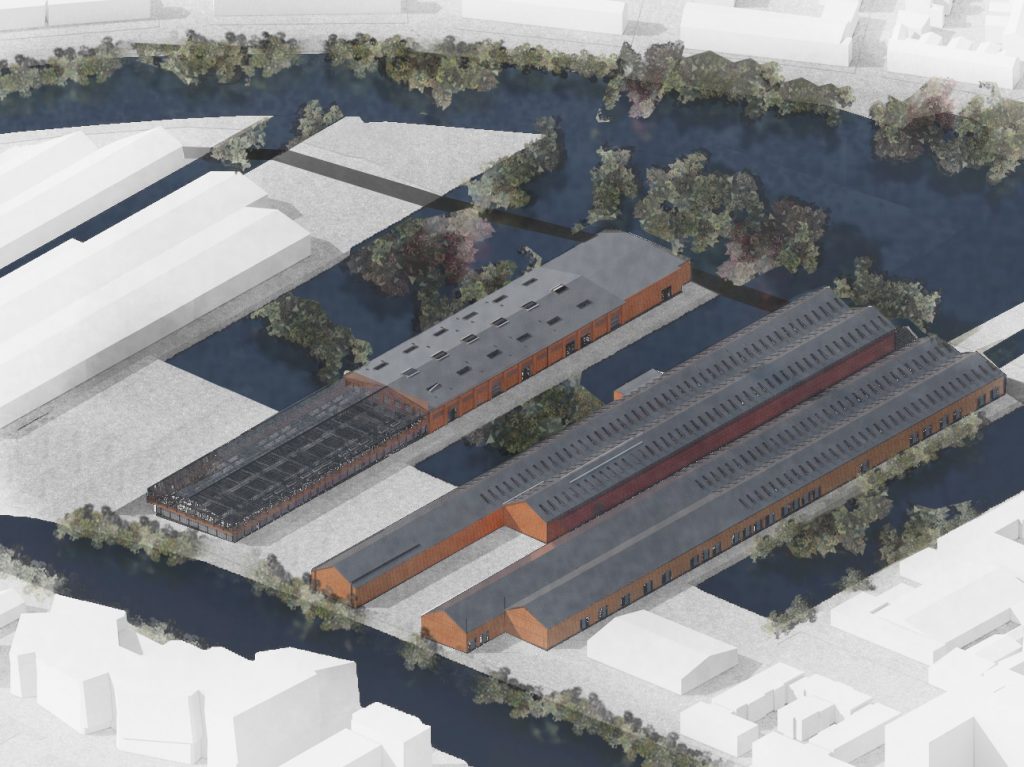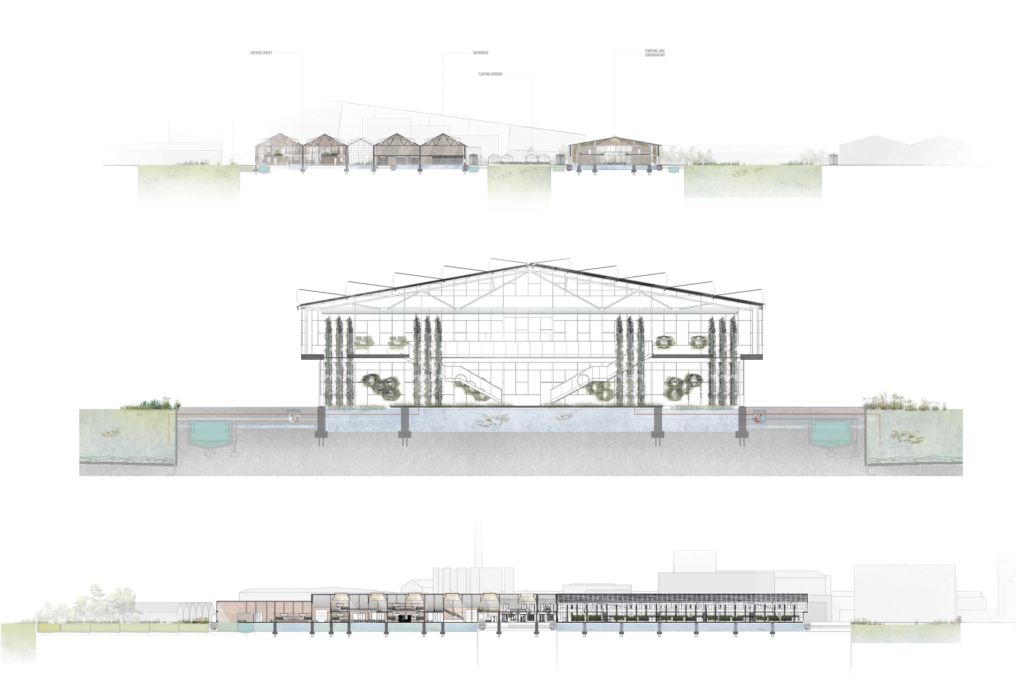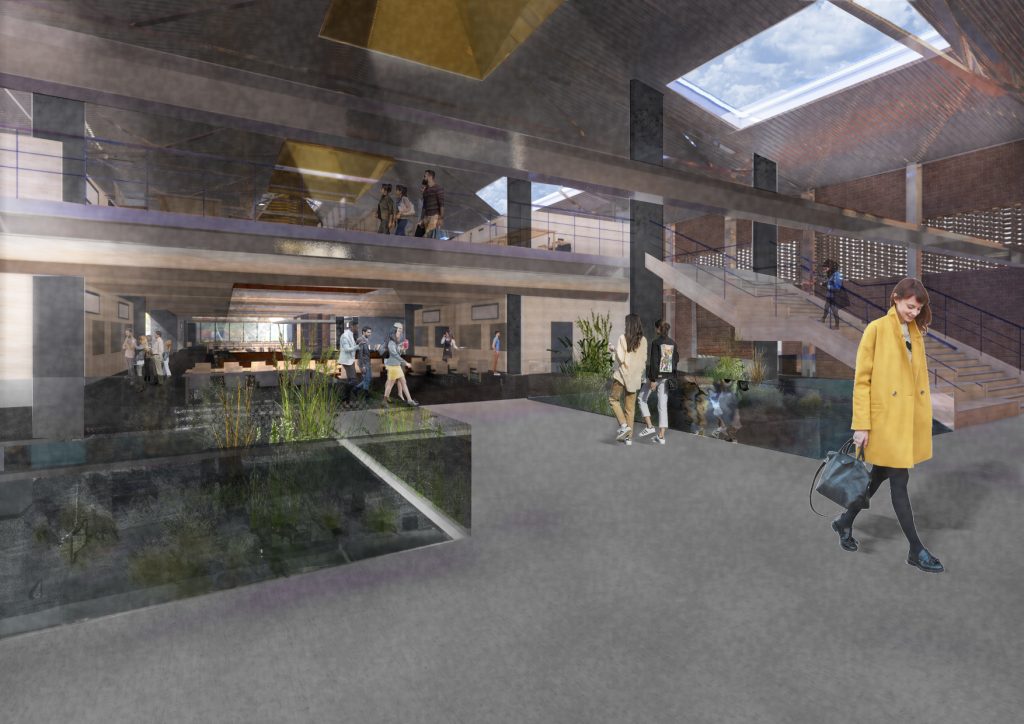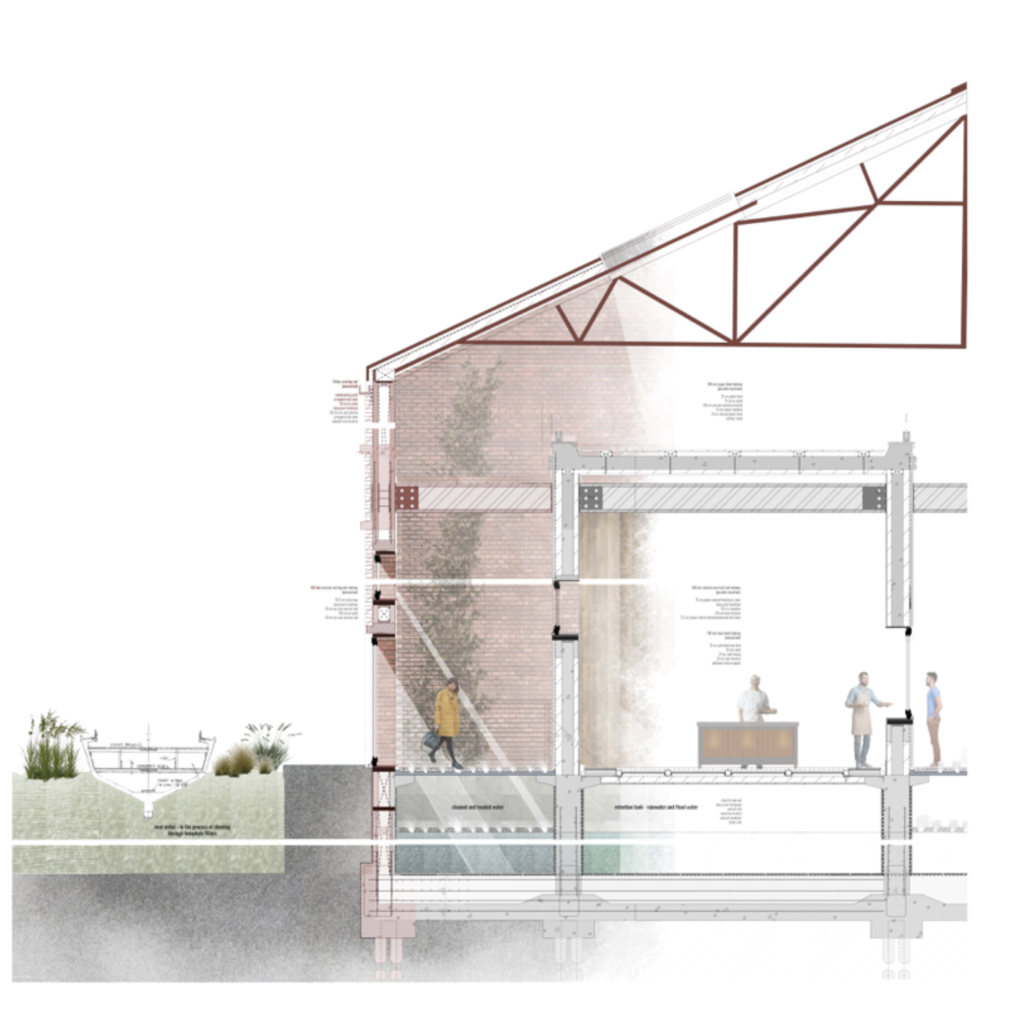Curran Road Basin
This project celebrates the value of water on a site which was once harvested from water. By using water in various ways to grow (food hall + conservatory), socialise (bathhouse), to bring delight and mental benefits (creative spaces) as well as to protect (the canals and floodplains), it provides unexpected activities gathered in the reused Curran Steel’s complex. Recent events of flooding in Cardiff through February and March demonstrated that even though the flood-prevention system was sufficient, we cannot in fact control water. By bringing water back to the site, it can help relieve other locations from the flood-stress.
The three partners creatives, scientists and tech researchers come together under the Wellcome Trust that is interested in collaboratively coming up with sustainable and healthy solutions for food industry. Due to the Brexit’s food import and lack of urban farming, as well as the unsustainable character of traditional farming (its high soil dependency and water consumption), the project proposes compact farming of hydro- and aero-ponics. That enables to produce locally sourced produce and ensures that it gets faster and fresher to the consumer. Together, with the floating gardens on the canals and along the river banks, farms can enable Butetown to become a self-sustaining borough.
The food hall acts a hub space for people to gather and share food. While this is more focused on the visitors, the bathhouse aims to address the social disintegration in Butetown and Grangetown and bring these communities together. The creative spaces highlight the under-valued industry that is often marginalised. Keeping the existing community onsite and expanding it allows to promote the industry and make the invisible visible once again.
The Curran Road Basin provides a reinvigorated social space that can reconnect banks of River Taff and create safer neighbourhood; it provides green spaces, technology and farming that can lead to Butetown becoming a self-sustaining borough. The proposal aims to provide value for the future – reusing a buildings shell with flexible interiors that can be adapted through time, reducing the dependency on soil, water and animals for farming and protecting the scarce resources. Lastly, the provision of new skills and employment for local people and various programmes can help provide a more vibrant environment in Butetown. Making the hidden visible.

Project Axonometric Overview

Sections of the project

Adaptive Reuse – Food Hall Space

Technical Section
CONTACT EMAIL: bart.robak96@gmail.com
LINKEDIN: http://linkedin.com/in/bartosz-pawel-robak
Curated by: Josephine Lerasle
